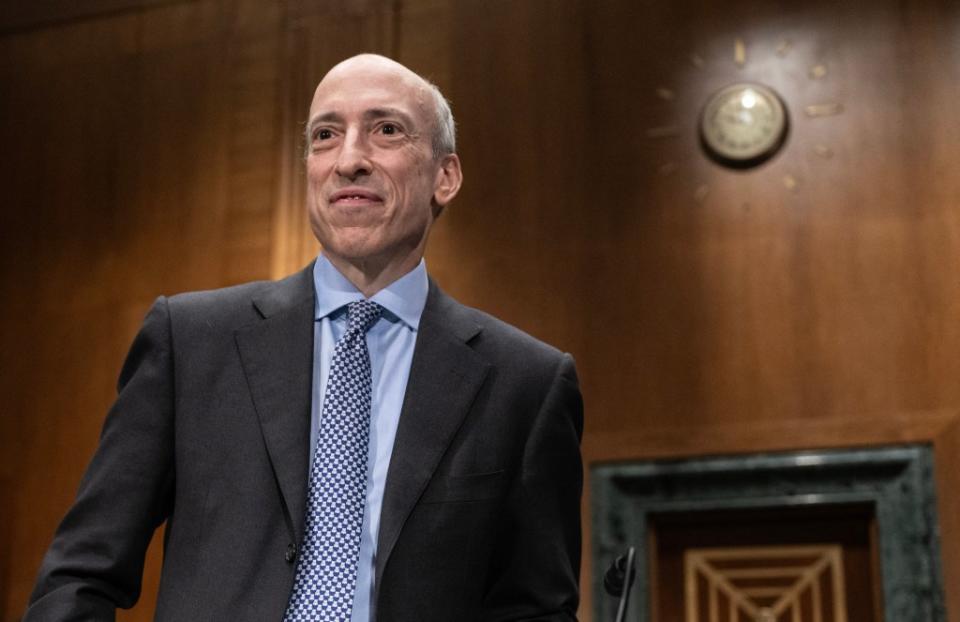While cryptocurrency users rejoiced when SEC Chair Gensler announced his departure, the US Senate will hold confirmation hearings for Trump’s choice.
Gary Gensler, the United States Securities and Exchange Commission (SEC) chair, stated on November 22 that he would leave his role on January 20.
Crypto users are celebrating his departure on X since he is considered by many to be one of the most “anti-crypto” SEC chairs in history.
The US Senate, which must approve any nominee, will examine the new choice for SEC Chair.
Gensler’s departure was revealed by the SEC in a news statement. During his tenure, the SEC brought legal action against several well-known Web3 protocols and exchanges, such as Coinbase, Uniswap, Consensys, the company that developed Metamask, and LBRY, a blockchain video streaming platform. Numerous cryptocurrency investors and users have denounced the lawsuits.
Gary Gensler’s dismissal on his first day in office was one of President-elect Donald Trump’s campaign pledges.
However, as regulating agency employees can only be dismissed “for cause,” trying to fire him might have resulted in a legal dispute. Due to Gensler’s resignation, this conflict will not occur.
Crypto X rejoices
On the social media site X, cryptocurrency users praised the news.
“Ding Dong, Gensler is Gone,” said Jeremy Hogan, a lawyer and content creator who frequently writes about legal proceedings involving cryptocurrency, and urged readers to “Sing it with me” to the tune of “The Witch is Dead” from the Wizard of Oz.

An artificial intelligence (AI)–generated video of Gensler sobbing after Donald Trump fired him was shared by Decentralized Finance (DeFi) enthusiast KatieePCrypto. Pro-crypto broadcasters disseminated the video worldwide.

No Trump nominee is expected soon.
Trump has yet to declare his choice for Gensler’s replacement. However, conjecture has focused on a few potential selections.
Summer Mersinger was recommended as the chair of the Commodities and Futures Exchange Commission by a Reuters story.
She has maintained that rather than bringing legal action against crypto protocols, the SEC ought to create regulations for them.
Former Binance US CEO Brian Brooks has a 33% probability of getting the position, while former SEC commissioner Paul Atkins has a 32% chance, according to prediction site Kashi. These two are getting the most bets out of all the site contenders.
Chris Giancarlo, the former chair of the CFTC, has rejected the idea that he will take the job, saying that he had “cleaned up the mess” Gensler left behind during his last term and doesn’t want to do it again.
The nominee might need help.
The US Senate, which has to confirm all panel members, may scrutinize Trump’s nominees closely.
Trump has declared that he will try to use recess appointments to get around some confirmations. However, to achieve this, Congress would need to vote to adjourn, which they might only be ready to do if the nominations are uncontroversial.
According to a Financial Times report, several members of Congress from Trump’s party are highly dubious of at least some of his choices, such as Robert F. Kennedy, Jr., the nomination for Health and Human Services Secretary, and Matt Gaetz, the contender for Attorney General, who recently withdrew.
The Senate may not confirm Trump’s nominee if they are perceived as ineffective at upholding securities rules against cryptocurrency companies; in that case, a “tougher” candidate may be selected.
Crypto litigation could be resolved. Eventually
The litigation against Coinbase, Uniswap, Consensys, and other companies will only be abandoned after a strong pro-crypto nominee is confirmed.
The panel members may be reluctant to abandon ongoing lawsuits since doing so could give the impression that the commission is political and the new chair represents one vote.
Nevertheless, several experts have believed the claims would ultimately be settled rather than proceed to trial.
Katrina Paglia, the chief legal officer at Pantera Capital, said that the litigation will probably “quietly go away” when the SEC allows defendants to make “neither admit nor deny” comments and pays some fines.



